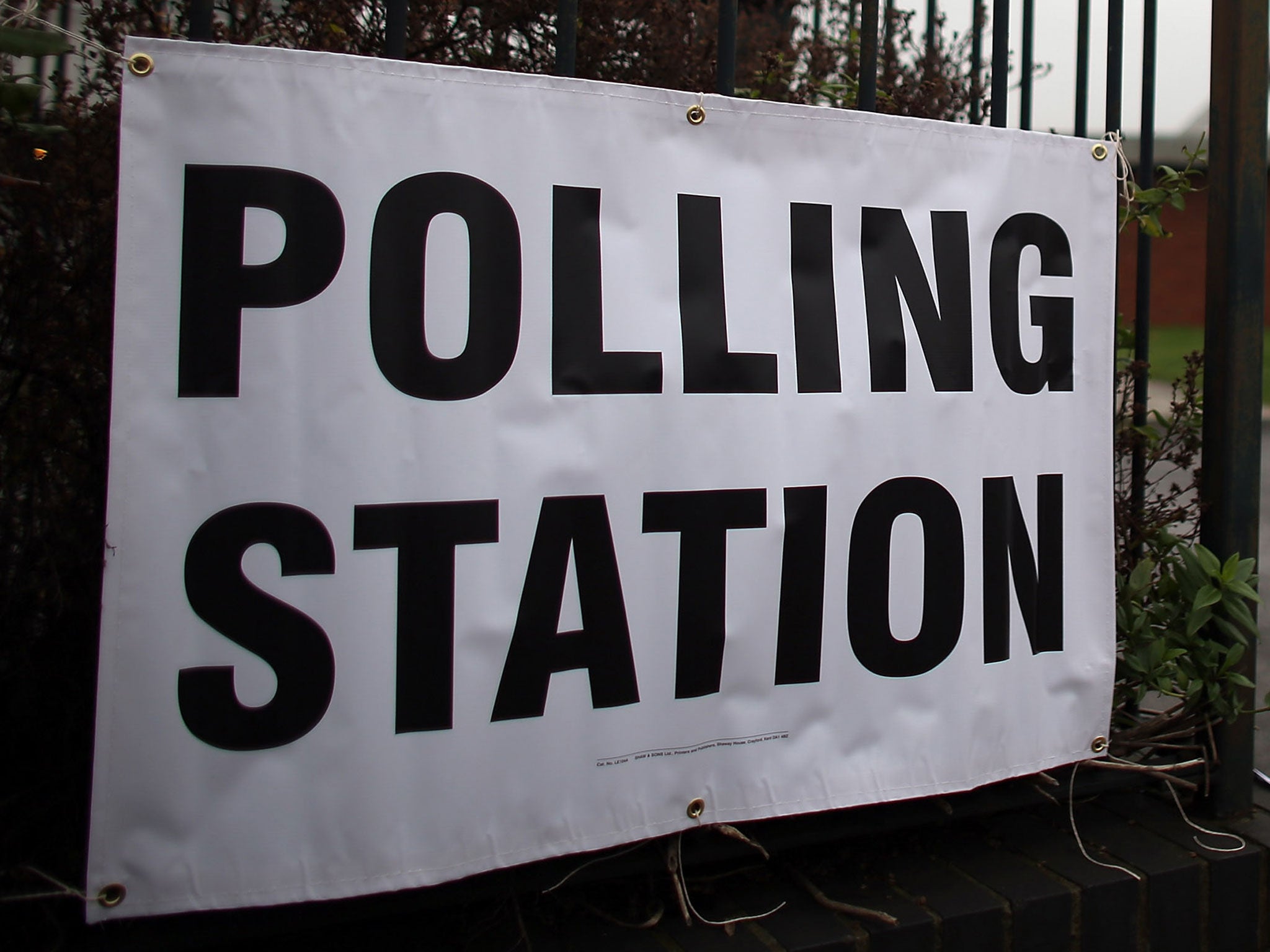Voting should be compulsory for young people at least once, says think tank
Compelling young people to participate would forge lifetime habits, IPPR suggests

Your support helps us to tell the story
From reproductive rights to climate change to Big Tech, The Independent is on the ground when the story is developing. Whether it's investigating the financials of Elon Musk's pro-Trump PAC or producing our latest documentary, 'The A Word', which shines a light on the American women fighting for reproductive rights, we know how important it is to parse out the facts from the messaging.
At such a critical moment in US history, we need reporters on the ground. Your donation allows us to keep sending journalists to speak to both sides of the story.
The Independent is trusted by Americans across the entire political spectrum. And unlike many other quality news outlets, we choose not to lock Americans out of our reporting and analysis with paywalls. We believe quality journalism should be available to everyone, paid for by those who can afford it.
Your support makes all the difference.Voting should be made compulsory for young people casting their ballots for the first time, a leading think-tank says. Under plans to improve electoral participation, the Institute for Public Policy Research suggests that first-time voters should be required to go to the polling station and vote, or face a small fine.
But under its proposal all ballot papers would include a “none of the above” option, addressing the issue of being forced to vote when none of the candidates is acceptable.
The organisation, which was recently commissioned by ministers to put forward plans for civil service reform, has previously recommended that voting should be made compulsory – as is already the case in Australia. But in its latest report, released today, they suggest that simply imposing voting on first-time members of the electorate would have a significant impact on turn-out and representation. People who vote in the first election they are eligible for are much more likely to continue voting throughout their lives.
The IPPR argues that such a move would not only increase the participation rate of young people in democracy but would ensure that political parties paid more attention to the concerns of young people when devising policy.
It points out that recent spending cuts have disproportionately affected young people, with 16-to-24-year-olds facing cuts to services worth 28 per cent of their annual household income, compared with 10 per cent of the income of those aged 55-74.
Overall, those who did not vote in the 2010 general election faced cuts worth 20 per cent of their annual household income, compared with 12 per cent of those who did vote.
Britain has one of Europe’s widest gaps in voter turnout between young er and older people. The turnout rate for individuals under 35 earning less than £10,000 a year is just 34 per cent, whereas the turnout rate for people over 55 and earning at least £40,000 a year is 79 per cent. In the 2010 general election only 44 per cent of 18-to-24-year-olds voted, compared with 76 per cent of those aged 65 and over.
Guy Lodge, an IPPR associate director and one of the report’s authors, said unequal turnout mattered because it gave older and more affluent voters disproportionate influence at the ballot box.
“Young people who don’t vote today are less likely than previous generations to develop the habit of voting as they get older, which is why first-time compulsory voting is so important,” he said.
“Unequal turnout unleashes a vicious cycle of disaffection and under-representation. As policy becomes less responsive to their interests, more and more decide that politics has little to say to them.”
Sarah Birch, a Professor of Politics at the University of Essex, said: “Unless radical action is taken, turnout inequalities in Britain will grow wider. First-time compulsory voting could well be very effective in engaging young people in politics. There are many other things that young people are required to do, not the least of which is go to school.
“Adding just one more small task to this list would not represent an undue burden, and it could well help to reinvigorate democracy. It would make politicians target first-time voters like never before and give young voters the potential for far greater political power.”
Join our commenting forum
Join thought-provoking conversations, follow other Independent readers and see their replies
Comments